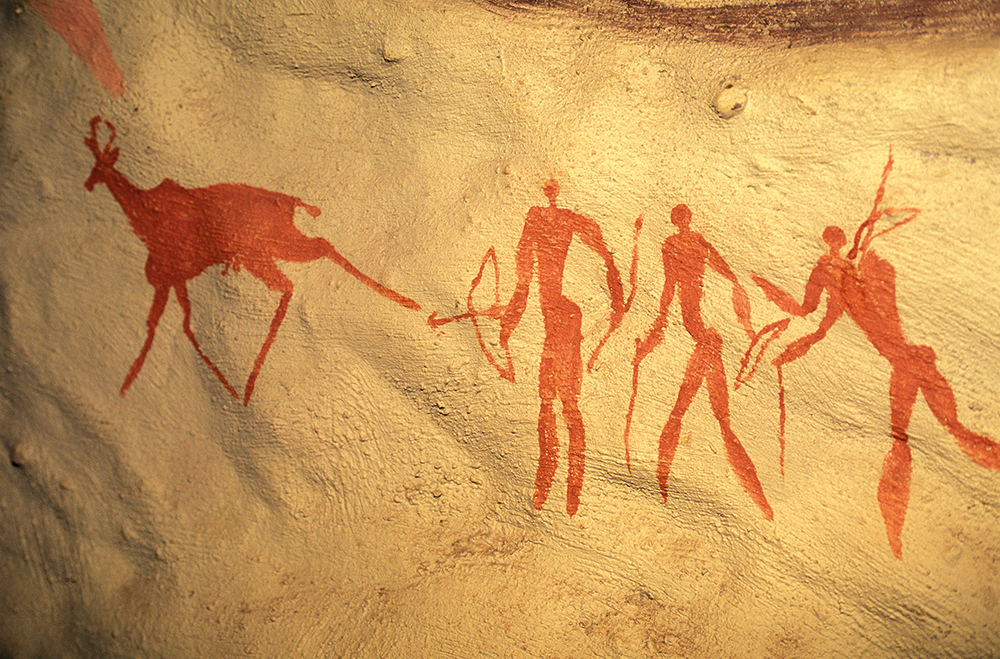Origin stories have always helped humans gain a moral compass. Locked in a tight embrace, the Maori deities Rangi and Papa are separated by their enveloped children, creating the distant father sky and nurturing Mother Earth, bringing light to the world. Mayan gods fashion man from maize after destroying earlier clay and wood versions, who are seen to have no soul. Adam and Eve eat from the Tree of Life but illicitly also from the Tree of Knowledge. One of the more touted modern human origin stories, ostensibly based on evolutionary science, speaks of a natural inequality between violent and promiscuous men and caring and faithful women. Having evolved to produce more of their sort, aggressive, lustful males hunted for game and exchanged meat for sex with coy female partners. The history of civilisation, we’re told, is a progressive attempt to replace oppression with deliberative politics, strong men with women’s lib and LGBTQ rights.
Once men grabbed power, they began sitting at the heads of rectangular tables, rather than equitably around circles
But what if the great challenges of humankind do not stem from an inescapable evolutionary need of men to possess women sexually, but rather from a different source: one which we brought upon ourselves as we began to accumulate material wealth beyond our immediate needs? What if gender equality is not a liberal struggle but an evolutionary legacy? Thinkers from Friedrich Engels to Margaret Mead have made this point, speaking of the agricultural revolution as a turning point. Early hunter-gatherers lived in cooperative groups, happy and egalitarian, until they began domesticating plants and animals. It was then that bullies corralled the food surplus and took hold of the means of production. Today we just call them elites.
In Why Men? the anthropologist Nancy Lindisfarne and her historian husband Jonathan Neale use an explicitly ‘ecological-socialist-feminist’ approach to compare humans to our gibbon, gorilla, baboon, chimpanzee and bonobo kin.







Comments
Join the debate for just $5 for 3 months
Be part of the conversation with other Spectator readers by getting your first three months for $5.
UNLOCK ACCESS Just $5 for 3 monthsAlready a subscriber? Log in